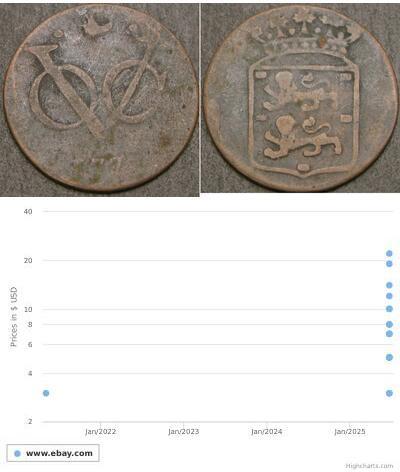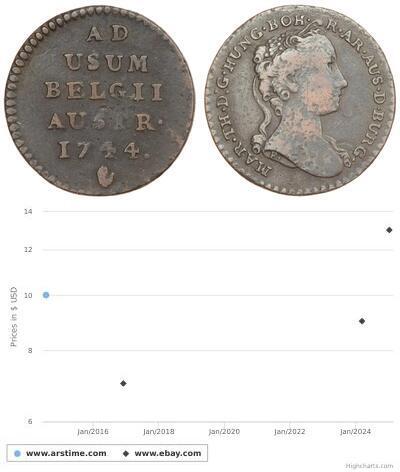16 Shilling Hamburg Silver Joseph II, Holy Roman Emperor (1741 - ...
1789, Hamburg (Free City), Joseph II. Silver 16 Schilling (1 Mark) Coin
Mint Year: 1789
Reference: KM-463.
Denomination: 16 Schilling (1 Mark)
Diameter: 31mm
Weight: 9.10gm
Material: Silver
In 1189 by Frederick I “Barbarossa” granted Hamburg the status f an Imperial Free City and tax-free access up the Lower Elbe into the North Sea. In 1265, a putative forged letter was presented to or by the Rath of Hamburg. This charter, along with Hamburg’s proximity to the main trade routes of the North Sea and Baltic Sea, quickly made it a major port in Northern Europe. Its trade alliance with Lübeck in 1241 marks the origin and core of the powerful Hanseatic League of trading cities. On November 8, 1266 a contract between Henry III and Hamburg’s traders allowed them to establish a hanse in London. This was the first time in history the word hanse was mentioned for the trading guild Hanseatic League. The first description of civil, criminal and procedural law for a city in Germany in German language, the Ordeelbook (Ordeel: sentence) was written by the solicitor of the senate Jordan von Boitzenburg in 1270. On August 10, 1410 civil commotion caused a compromise (German:Rezeß, literally meaning: withdrawal). It is the considered as the first constitution of Hamburg.
Joseph II (German: Josef Benedikt Anton Michael Adam; English: Joseph Benedict Anthony Michael Adam; 13 March 1741 – 20 February 1790) was Holy Roman Emperor from 18 August 1765 and sole ruler of the Habsburg monarchy from 29 November 1780 until his death. He was the eldest son of Empress Maria Theresa and her husband, Emperor Francis I, and the brother of Marie Antoinette, Leopold II, Maria Carolina of Austria and Maria Amalia, Duchess of Parma. He was thus the first ruler in the Austrian dominions of the union of the Houses of Habsburg and Lorraine, styled Habsburg-Lorraine.
Joseph was a proponent of enlightened absolutism; however, his commitment to secularizing, liberalizing and modernizing reforms resulted in significant opposition, which resulted in failure to fully implement his programs. Meanwhile, despite making some territorial gains, his reckless foreign policy badly isolated Austria. He has been ranked with Catherine the Great of Russia and Frederick the Great of Prussia as one of the three great Enlightenment monarchs. False but influential letters depict him as a somewhat more radical philosophe than he probably was. His policies are now known as Josephinism.
He was a supporter of the arts, particularly of composers such as Wolfgang Amadeus Mozart and Antonio Salieri. He died with no surviving offspring and was succeeded by his younger brother Leopold II.
(3205 X 1538 pixels, file size: ~933K)
Posted by: anonymous 2023-11-28
Untitled Document 1789, Hamburg (Free City), Joseph II. Silver 16 Schilling (1 Mark) Coin. VF-aXF! Mint Year: 1789 Reference: KM-463. Condition: VF-About XF! Denomination: 16 Schilling (1 Mark) Diameter: 31mm Weight: 9.10gm Material: Silver In 1189 by Frederick I " ...
















